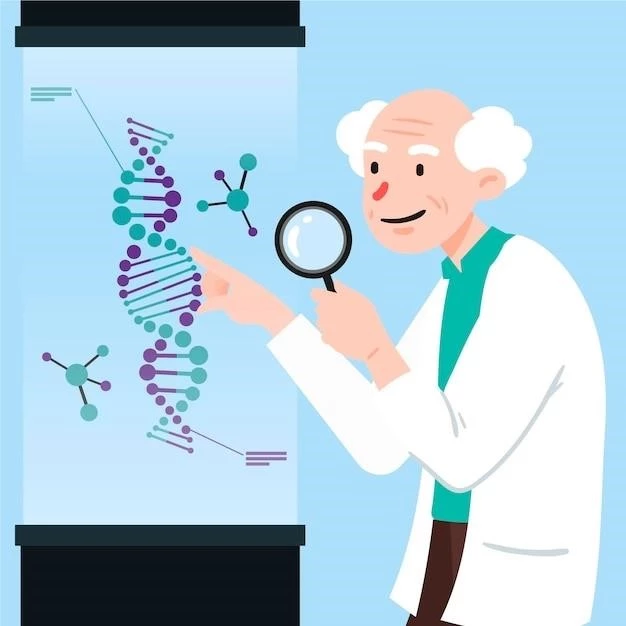Understanding Karsch-Neugebauer Syndrome
Karsch-Neugebauer Syndrome, a rare genetic condition, is characterized by mutations in the RNA-binding protein leading to neurodevelopmental disorders. Symptoms include intellectual disability, stereotypic movements, speech delay, and autism spectrum disorder.
Overview of Karsch-Neugebauer Syndrome
Karsch-Neugebauer Syndrome, also known as KANSL1-related intellectual disability syndrome٫ is a rare genetic disorder characterized by mutations in the KANSL1 gene. This gene provides instructions for making a protein that is involved in various cellular processes٫ including regulating gene activity during brain development.
Individuals with Karsch-Neugebauer Syndrome typically experience neurodevelopmental disorders that affect cognitive and physical abilities. The condition is associated with intellectual disability, which can range from mild to severe. Patients may also exhibit stereotypic movements, repetitive behaviors, speech delays, and difficulties with motor skills.
The syndrome is caused by mutations in the KANSL1 gene that result in the production of a non-functional or altered protein. This genetic mutation disrupts normal brain development and function, leading to the characteristic symptoms of the disorder.
Understanding the underlying genetic cause of Karsch-Neugebauer Syndrome is crucial for diagnosis, management, and potential treatment options. Ongoing research aims to further elucidate the mechanisms by which KANSL1 gene mutations impact brain development, offering hope for improved interventions and support for individuals and families affected by this rare neurodevelopmental disorder.
Genetics and Inheritance
Karsch-Neugebauer Syndrome is primarily caused by mutations in the KANSL1 gene located on chromosome 17. This gene provides instructions for producing the KANSL1 protein, which is involved in regulating gene expression during brain development. Mutations in this gene can disrupt normal protein function, leading to the characteristic features of the syndrome.
The mutations in the KANSL1 gene associated with Karsch-Neugebauer Syndrome can occur in a sporadic (de novo) manner, meaning they are not inherited from parents but arise as new mutations in affected individuals. In some cases, the mutations may be inherited from one parent who carries the altered gene.
The inheritance pattern of Karsch-Neugebauer Syndrome is typically autosomal dominant, which means that a mutation in only one copy of the KANSL1 gene is sufficient to cause the disorder. If a parent carries a mutation in the KANSL1 gene, there is a 50% chance that their offspring will inherit the mutation and develop the syndrome.
Due to the rarity of Karsch-Neugebauer Syndrome and the variability of symptoms among affected individuals, genetic testing is often recommended to confirm the diagnosis and provide information about the specific genetic mutation. Genetic counseling can help individuals and families understand the inheritance pattern of the syndrome and make informed decisions about family planning and reproductive options.
RNA-binding Protein and Polyadenylation
The KANSL1 gene associated with Karsch-Neugebauer Syndrome encodes a protein that plays a critical role in RNA metabolism. Specifically, the KANSL1 protein is involved in regulating polyadenylation, a process essential for normal gene expression. Polyadenylation is the addition of a string of adenine nucleotides, known as a poly(A) tail, to the end of messenger RNA (mRNA) molecules.
Polyadenylation of mRNA is important for stabilizing the mRNA molecules, facilitating their transport from the cell nucleus to the cytoplasm, and enhancing their translation into proteins. The KANSL1 protein interacts with other proteins in the cell to coordinate the polyadenylation process and ensure proper mRNA function.
Mutations in the KANSL1 gene can disrupt the normal function of the KANSL1 protein, leading to abnormalities in polyadenylation and gene expression. These disruptions can have far-reaching effects on neurodevelopment, as proper gene regulation is essential for the formation and function of the brain.
Understanding the role of the KANSL1 gene in polyadenylation and RNA metabolism is essential for unraveling the molecular mechanisms underlying Karsch-Neugebauer Syndrome. Research efforts focused on elucidating how KANSL1 mutations affect polyadenylation and gene expression may offer insights into potential therapeutic approaches for managing the disorder and improving outcomes for individuals affected by this rare genetic condition.

Common Symptoms
Karsch-Neugebauer Syndrome is characterized by a range of symptoms that affect neurodevelopment and cognitive function. Individuals with this syndrome may experience intellectual disability, which can manifest as challenges in learning, problem-solving, and adaptive skills. The severity of intellectual disability can vary among affected individuals, with some having mild impairments and others more severe cognitive deficits.
Another common symptom of Karsch-Neugebauer Syndrome is stereotypic movements, which are repetitive, non-functional behaviors such as hand-flapping, body rocking, or finger twirling. These stereotypic movements often appear in early childhood and can persist into adulthood. Speech delay is also frequently observed in individuals with the syndrome, with affected individuals exhibiting delays in the development of language and communication skills.
In addition to intellectual disability, stereotypic movements, and speech delay, individuals with Karsch-Neugebauer Syndrome may display features commonly associated with autism spectrum disorder (ASD). These features can include difficulties with social interaction, communication challenges, repetitive behaviors, and restricted interests. While not all individuals with the syndrome meet the criteria for a formal ASD diagnosis, there is significant overlap in symptoms between the two conditions.
The combination of intellectual disability, stereotypic movements, speech delay, and features reminiscent of ASD can have a significant impact on the daily lives of individuals with Karsch-Neugebauer Syndrome. Early identification of these symptoms and comprehensive support services are essential for optimizing outcomes and promoting the well-being of individuals affected by this complex neurodevelopmental disorder.
Diagnosis and Treatment
Diagnosing Karsch-Neugebauer Syndrome often involves a combination of clinical evaluation, genetic testing, and assessment of symptoms. A thorough physical examination and review of the individual’s medical history are typically the first steps in the diagnostic process. Clinicians may observe common symptoms such as intellectual disability, stereotypic movements, speech delay, and features resembling autism spectrum disorder (ASD).
Genetic testing, including chromosomal microarray analysis and sequencing of the KANSL1 gene, can help confirm a diagnosis of Karsch-Neugebauer Syndrome. Identifying the specific genetic mutation responsible for the syndrome can provide valuable information for understanding the underlying cause and informing appropriate management strategies.
While there is currently no cure for Karsch-Neugebauer Syndrome, treatment focuses on addressing the individual’s specific needs and symptoms. Early intervention services, including speech therapy, occupational therapy, and behavioral interventions, can help support cognitive and social development. Individualized education programs (IEPs) may be implemented to address learning challenges associated with intellectual disability.
Medical management of symptoms such as seizures, gastrointestinal issues, and sleep disturbances may also be part of the treatment plan for individuals with Karsch-Neugebauer Syndrome. Regular monitoring by a multidisciplinary healthcare team, including neurologists, geneticists, developmental pediatricians, and therapists, is essential for providing comprehensive care and optimizing the individual’s quality of life.
Research into potential targeted therapies for Karsch-Neugebauer Syndrome is ongoing, with a focus on understanding the molecular mechanisms of the disorder and exploring novel treatment approaches. Collaborative efforts between researchers, clinicians, and affected individuals and families are crucial for advancing knowledge about the syndrome and improving outcomes for those impacted by this rare neurodevelopmental disorder.
Living with Karsch-Neugebauer Syndrome
Individuals and families affected by Karsch-Neugebauer Syndrome face unique challenges that accompany the neurodevelopmental and cognitive symptoms of the disorder. Living with the syndrome requires ongoing support, understanding, and access to specialized services to enhance quality of life and promote well-being.
For individuals with Karsch-Neugebauer Syndrome, daily living activities may be impacted by intellectual disability, communication difficulties, and sensory sensitivities. Creating a supportive environment that accommodates these challenges, such as providing visual schedules, structured routines, and sensory-friendly spaces, can help individuals feel more comfortable and confident in their surroundings.
Family members and caregivers play a vital role in supporting individuals with Karsch-Neugebauer Syndrome. Caregivers often navigate complex medical needs, coordinate appointments with healthcare providers, and advocate for educational and therapeutic services. Building a strong support network that includes healthcare professionals, educators, therapists, and community resources can help families address the multifaceted needs of individuals with the syndrome.
Educational programs tailored to the unique learning styles and abilities of individuals with Karsch-Neugebauer Syndrome are essential for promoting academic progress and skill development. Schools may implement individualized education plans (IEPs) that outline specific goals, accommodations, and support services to help students succeed in a classroom setting. Collaboration between families, educators, and support staff is key to ensuring a comprehensive and effective educational experience.
Maintaining open communication and fostering strong relationships within the community can also contribute to the well-being of individuals with Karsch-Neugebauer Syndrome. Providing opportunities for social interactions, participation in community activities, and access to supportive services can help individuals with the syndrome lead fulfilling and enriched lives.
Research and Future Directions
Research focused on Karsch-Neugebauer Syndrome aims to deepen our understanding of the genetic mechanisms, molecular pathways, and neurodevelopmental consequences of the disorder. By elucidating the underlying causes of the syndrome, researchers seek to identify potential targets for therapeutic interventions and improve the quality of life for affected individuals.
One area of research interest is the exploration of RNA-binding proteins and their roles in regulating gene expression during brain development. Understanding how mutations in genes such as KANSL1 impact RNA metabolism and protein synthesis is crucial for unraveling the pathogenesis of Karsch-Neugebauer Syndrome. Researchers are investigating the specific effects of KANSL1 mutations on polyadenylation, mRNA stability, and neuronal function to pinpoint key areas for intervention.
Advancements in genomic technologies have enabled researchers to conduct detailed genetic analyses, identify new genetic variants associated with the syndrome, and expand our knowledge of its genetic architecture. By applying techniques such as whole exome sequencing and functional genomics, scientists are uncovering novel insights into the molecular basis of Karsch-Neugebauer Syndrome and its phenotypic variability.
In addition to genetic studies, research efforts are focused on developing targeted therapies that address the underlying molecular defects in Karsch-Neugebauer Syndrome. Potential treatment strategies may involve gene editing techniques, RNA-based therapies, or pharmacological interventions aimed at restoring normal gene expression and neuronal function in affected individuals.
Collaborative initiatives that bring together researchers, clinicians, advocacy groups, and affected individuals and families are critical for advancing research on Karsch-Neugebauer Syndrome. By fostering interdisciplinary collaborations and sharing knowledge and resources, the scientific community can accelerate progress towards effective therapies, improved diagnostic tools, and better supportive care for individuals living with this rare neurodevelopmental disorder.
